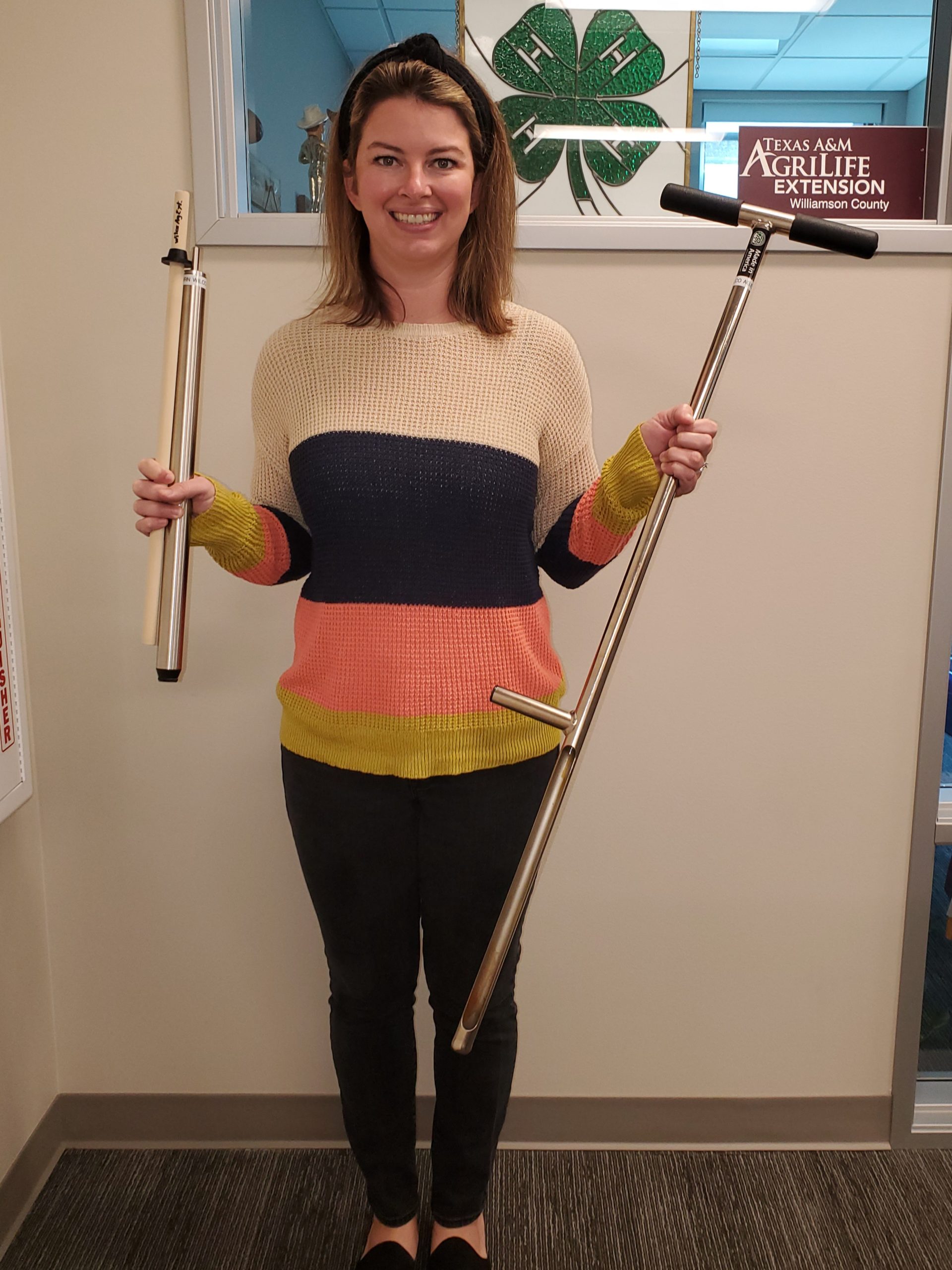Today, I had a fun opportunity to teach a group of kids about the things plants need to thrive and grow. The list is pretty short: soil, light, water, air, and nutrients. One essential thing for a gardener to understand is the importance of soil because soil is the storehouse for water, air and nutrients and it provides a place for the plant to grow. If you are just getting started in gardening, start with some good soil preparation!
The soil type in your lawn or garden will affect the amount of water, air, and nutrients available to the plant. Clay soils hold onto water and can become so saturated with water that it squeezes the air out of the soil. Sandy soils drain water quickly and can dry out from wind. Vegetable gardens need a well-drained soil with adequate organic matter (decomposing plant and animal matter).
You cannot do much to change your soil type, but you can amend it to improve your soil. Adding organic matter can help loosen tight clay which will improve drainage and oxygen availability. Organic matter also adds nutrients to the soil. The best way to add organic matter to the soil is by adding compost, which you can buy in bulk or in bags. Add about three to four inches of compost and work it into the soil.
If you have time to prepare garden beds this fall for spring planting, you can work in plant materials like leaves, straw, and grass clippings. These materials need time to decompose, so add them this fall or winter for your spring garden. Composted manure is also a great addition, but make sure it is composted before you add it (no fresh manure) or it will damage plants. Apply 30 to 40 pounds of composted manure for every 100 square feet of garden space.
Compost is a great addition to soil but remember that vegetable plants use a lot of nutrients because they grow quickly and put a lot of energy into producing fruit for us to eat. Be sure to provide extra nitrogen throughout the growing season so your plants will be healthy and produce a lot of garden harvest.
For more information about growing specific crops and garden preparation, be sure to visit the Aggie Horticulture Easy Gardening Series at https://aggie-horticulture.tamu.edu/vegetable/easy-gardening-series/.


